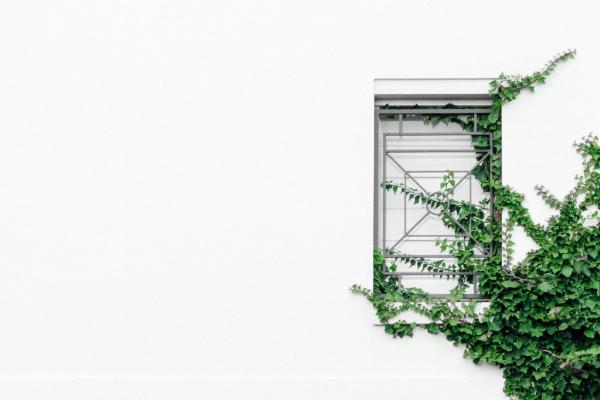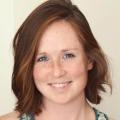I could have written an A-plus seminary paper on race before I ever knew that Black people in Georgia feared my hometown. I was 26 and had called Forsyth home for half my life. Then, I learned that the entire white population of the county stood by in 1912 as their leaders lynched three young men and then drove every Black family across county lines with guns, fire, and dynamite. Over the following years they all quietly erased those neighbors, burning their churches and stealing their land, and covering over their stories with uneasy silence. Forsyth remained an all-white sundown town until the 1990s.
I took Georgia history at 13 and U.S. history at 16 in that town, but it wasn’t until I was 26 that I learned how ruthlessly whiteness can lie.
Before I learned my town’s true history, I cared about racial justice. I had just moved back to the South from Boston in part because I’d rather work on my own region’s racism problems than try to convince Northerners they had any. But in the midst of so much work to be done to achieve racial justice in the form of improved systemic outcomes for Black, Indigenous, and people of color, I rarely slowed down enough to notice how this work was asking me to rearrange my own identity. It wasn’t until I got specific about my own town’s history that I was really seized by the question: What does this inheritance mean for my story and my soul?
Growing up in the suburbs of Atlanta, I was accustomed to looking at small forests and seeing future shopping centers. In elementary school, we learned about environmental destruction in the morning then went outside for recess and watched developers clear-cut lots for subdivisions. The intricacies of private property ownership, housing policy, and the principles of economic growth were lost on me.
When my family moved out to Forsyth, we witnessed history repeating itself as farmland sprouted signs reading “commercially zoned.” Starbucks came to town and the view from the north side of Sawnee Mountain slowly turned more grey than green. In high school, I understood population growth and “economic opportunity.” But I never made peace with the unacknowledged loss, the erasure of an ecosystem, the policy of calling it “growth” when we successfully buried a thriving piece of land in concrete.
When I think of whiteness today, I think of those suburbs. They give the appearance of peace and prosperity. After living in Boston without a car, I returned to my parents’ house with something like nostalgia for SuperTarget. But I also saw more clearly what’s missing if you try to look past the veneer. Those tidy suburban versions of peace and prosperity are almost entirely oriented toward consumption and away from connection. I remember going to church with the kids from the wealthy school district to the south of us, and I remember how miserable so many of them felt.
Of course, neither ennui nor self-deception is an invention of white people. But in the wealthy white suburbs we’ve inherited a culture of disconnection, a colonizing imagination, habits that live deep at the level of our being. Just like those McMansion dwellers who should, by all rights, be happy, my family has participated in the same project of whiteness for centuries.
In Forsyth, the forest is left unsaid. The Indigenous people who once tended this stolen land are left unsaid. Those who were driven out to create this all-white dystopia are left unsaid. The despair of the wealthy is left unsaid. The feeling that something is not right is left unsaid.
I’m still learning how to say that my ancestors were not simply “Revolutionaries” and “pioneers” but also colonizers who were instrumental in the theft of Black and Indigenous land, labor, and lives. I don’t know where to begin my own healing except to face those truths.
It’s not that being white is something to be ashamed of. I can’t help my pale, freckled skin, or the way others perceive me. I love my skin, dotted with auburn, and crisscrossed with faint blue lines. I love my family’s skin. I love my family. “Whiteness,” though, is not my skin or my family. Whiteness is the project of inventing systems and structures maintaining artificial hierarchies.
In order to participate in such a brutal project, my ancestors had to learn to perform the psychological gymnastics of declaring their victims subhuman. As that declaration was enshrined in law, religious practice, written history, social customs, science and medicine, and in human beings’ hearts, generation upon generation was raised with supremacy as the only reality they ever knew.
But no matter how much power and privilege you gain, you warp your heart and your children’s hearts in the process of abusing others. As a result, we are a people group who live lives of profound alienation from the connections — to others, to land, to Creator, to aspects of our selves, to creativity and Spirit — that make us most deeply, truly human.
For the first several years I tried to practice justice and antiracism, I thought my job was to help change systems and structures of harm — and it was. But as my relationships with friends of color deepened, my understanding of history grew and my vision of my whiteness became clearer. My consistent oversights and failures were not merely mistakes I could have avoided with the right checklist. Instead, my feeling that I was constantly getting it wrong pointed to the ways white supremacy, with its hierarchies, competitions, perfectionism, and commodification, still lived within my bones.
I was being invited to transformation — to let go of the lens of whiteness and the false promises of unearned privilege, and instead begin to rebuild the relationships my ancestors had severed. My understanding of God’s shalom has to shift from imagining suburban, surface-level “peace and prosperity,” reminiscent of a pax Romana, to a more creative, diverse, and sustainable vision of Christ’s abundant and joyful kin-dom. As I am learning to see the world differently, who I am within it also begins to shift.
Got something to say about what you're reading? We value your feedback!






